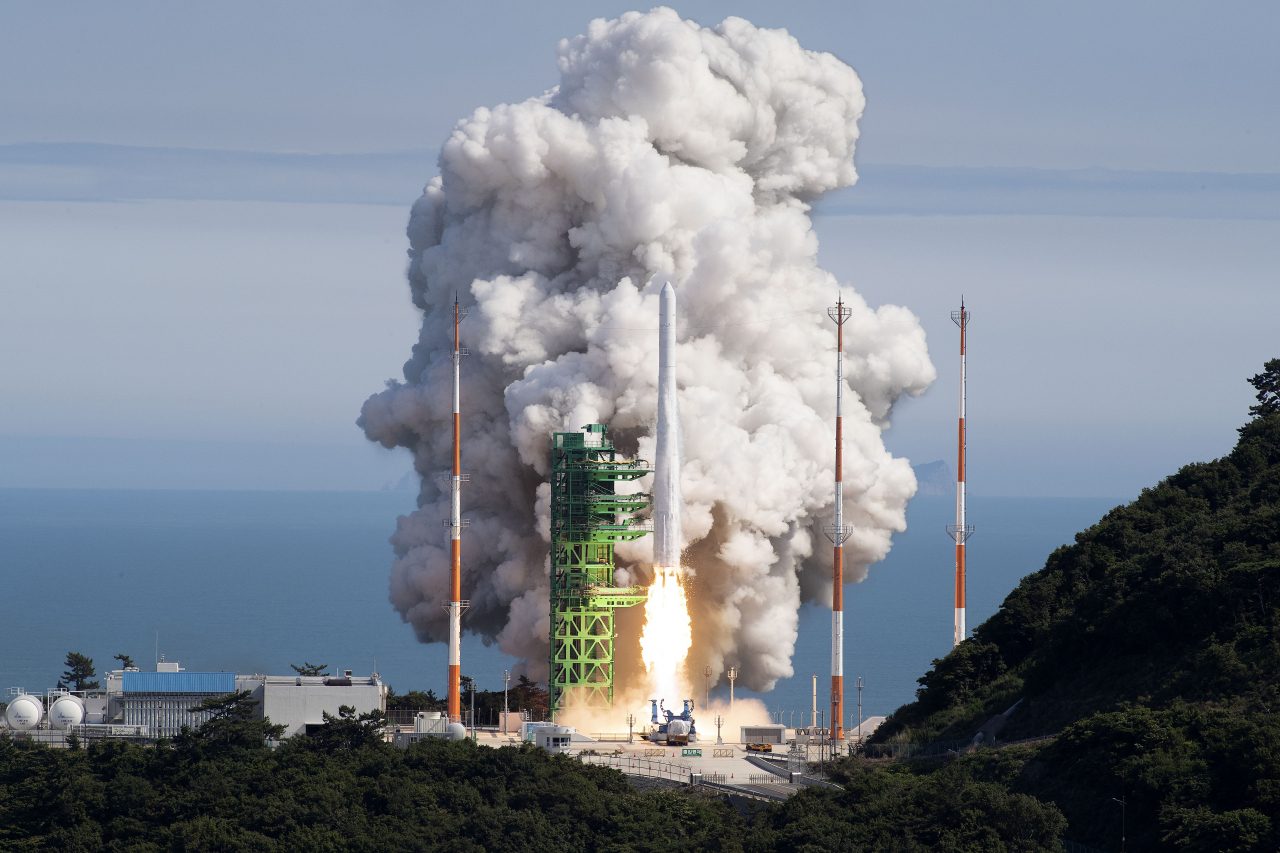S. Korea confirms homegrown space rocket's satellite orbit deployment capability
By YonhapPublished : June 22, 2022 - 11:21

A South Korean satellite has made two-way communication with its ground station, officials said Wednesday, confirming the success of the country's first-ever self-powered satellite deployment project.
South Korea on Tuesday successfully launched the 200-ton Nuri from Naro Space Center in the country's southern coastal village of Goheung in a major milestone in the country's space program.
The rocket, also known as KSLV-II, succeeded in deploying satellites at a target altitude of 700 kilometers as planned, according to officials.
The Ministry of Science and ICT announced a day after the launch that the performance verification satellite successfully made two-way communication with the ground station at the Korea Aerospace Research Institute (KARI) in Daejeon, 160 kilometers south of Seoul, at 3:01 a.m. Wednesday.
The communication follows the satellite's initial contact with South Korea's King Sejong Station in Antarctica after the launch Tuesday.
"Following the two-way communication with the KARI ground station in Daejeon, Nuri's satellite deployment capability has been fully confirmed," the ministry said.
From the latest communication, KARI verified the satellite was functioning properly with its condition intact.
It also commanded the satellite to sync up its clock with that of the ground station and also activated the satellite's GPS transmitter.
KARI plans to monitor the satellite and stabilize its position, then release four small cube satellites, which are currently joined to the performance verification satellite, one by one beginning next Wednesday. (Yonhap)



![[AtoZ into Korean mind] Humor in Korea: Navigating the line between what's funny and not](http://res.heraldm.com/phpwas/restmb_idxmake.php?idx=644&simg=/content/image/2024/04/22/20240422050642_0.jpg&u=)
![[Exclusive] Korean military set to ban iPhones over 'security' concerns](http://res.heraldm.com/phpwas/restmb_idxmake.php?idx=644&simg=/content/image/2024/04/23/20240423050599_0.jpg&u=20240423183955)



![[Graphic News] 77% of young Koreans still financially dependent](http://res.heraldm.com/phpwas/restmb_idxmake.php?idx=644&simg=/content/image/2024/04/22/20240422050762_0.gif&u=)
![[Herald Interview] Why Toss invited hackers to penetrate its system](http://res.heraldm.com/phpwas/restmb_idxmake.php?idx=644&simg=/content/image/2024/04/22/20240422050569_0.jpg&u=20240422150649)






![[Exclusive] Korean military to ban iPhones over security issues](http://res.heraldm.com/phpwas/restmb_idxmake.php?idx=652&simg=/content/image/2024/04/23/20240423050599_0.jpg&u=20240423183955)



![[Today’s K-pop] Ateez confirms US tour details](http://res.heraldm.com/phpwas/restmb_idxmake.php?idx=642&simg=/content/image/2024/04/23/20240423050700_0.jpg&u=)